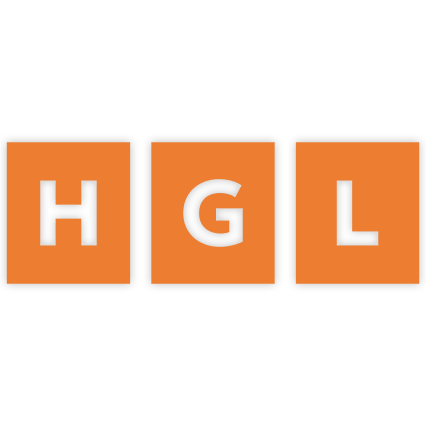

Charlotte Estate Planning Services
Helping Clients in Charlotte, Raleigh, Wilson & Surrounding Areas Plan for the Future
At Hicks-Guinn Law, we understand that estate planning can be a difficult and emotional process. Our attorney is here to help you navigate the process and draft documents to help ensure that your wishes are carried out after you have passed. We are committed to providing you with compassionate and personalized legal representation that looks at the specifics of your unique situation.
Our estate planning services include drafting wills, trusts, advance directives and powers of attorney to fit your needs and make your wishes known to your beneficiaries and family. We also offer elder law services to plan for Social Security earnings, Medicare, pensions and other assets and property.
Comprehensive Elder Law Services in Charlotte: Navigating Local Resources
Living in Charlotte, Raleigh, Wilson, and the surrounding areas, you are likely familiar with the unique challenges that come with planning for the future, especially when it comes to elder law. At Hicks-Guinn Law, PLLC, we are deeply rooted in the community and understand the specific needs of our local clients. We know that navigating the complexities of Social Security, Medicare, and pension plans can be overwhelming, particularly when dealing with local government entities such as the North Carolina Department of Health and Human Services and the Social Security Administration offices in Charlotte and Raleigh.
Our elder law services are designed to address these pain points by providing clear, actionable guidance tailored to your situation. Whether you are concerned about protecting your assets, ensuring your healthcare wishes are honored, or securing your financial future, we are here to help. We take pride in our ability to offer personalized legal solutions that reflect the unique aspects of living in this vibrant region.
Understanding the local landscape is crucial when planning for the future. For instance, the rising cost of living in Charlotte and the surrounding areas can impact your long-term financial planning. Our team is well-versed in the local economic conditions and can help you create a plan that takes these factors into account, ensuring that you and your loved ones are well-prepared for whatever the future holds.
Call (888) 373-9699 or contact us online to schedule a consultation for estate planning services in Charlotte.
What Sets Us Apart From The Rest?
Hicks-Guinn Law, PLLC is here to help you get the results you need with a team you can trust.
-
Experienced FirmBenefit from the wealth of experience our team brings to your side. In addition to successfully handling numerous cases, Robyn Hicks-Guinn also shares her expertise by instructing and mentoring other legal professionals.
-
Personalized SolutionsWhen you choose our firm, you will receive personalized legal representation. We will take the time to get to know you and work closely with you to develop a strategy tailored to your needs.
-
Flexible ConsultationsWe are flexible and committed to meeting you wherever is most convenient. Whether it's at your home, in a hospital, or through a virtual consultation, we ensure accessibility across the entire state.
-
Every Case Prepared for Court
Every case is meticulously prepared for court, ensuring that our clients receive the best representation and our commitment to achieving optimal outcomes for those we serve.
What Is Estate Planning?
Estate planning is the process of making a plan for the management and distribution of your assets after you pass away. It also includes making arrangements for your care and the management of your assets if you become incapacitated and are unable to make decisions for yourself.
Carefully drafted documents, such as a trust, can help you avoid probate, minimize estate taxes and ensure that your wishes are carried out.
Why Is Estate Planning Important?
Many people mistakenly believe that estate planning is only for the wealthy. In reality, everyone can benefit from having an estate plan in place. Having a plan in place is not just about distributing your assets, it is also about making sure that your wishes are carried out and that your loved ones are taken care of.
Without an estate plan, your assets will be distributed according to the laws of intestacy. This means that the state will decide who gets what. This can be a lengthy and expensive process for your loved ones. It can also lead to disputes among family members.
With an estate plan, you can make sure that your assets and real property are distributed according to your wishes. You can also make sure that your loved ones are taken care of, such as setting up a trust to provide for your children or a loved one with special needs.


-
From the first meeting Robyn was very knowledgeable, professional and empathetic which I highly value. Robyn and team genuinely cared about making sure I got the information that I needed to make the best decision.- Amara R.
-
I had a sensitive matter that needed to be handled quickly and efficiently and they took care of my needs. I would recommend their services anytime!- Tedra B.
What Is the Difference Between a Will and a Trust?
Both wills and trusts are important estate planning documents. However, they serve different purposes.
A will is a legal document that:
- Allows you to name an executor to manage your estate
- Allows you to name a guardian for your minor children
- Allows you to name beneficiaries to receive your assets
- Allows you to name a trustee to manage assets for your beneficiaries
A will only goes into effect after you pass away. It must go through probate, which is a court-supervised process for distributing your assets. During probate, your will becomes a public record. This means that anyone can see what you owned and who you left it to.
A trust is a legal arrangement that:
- Allows you to name a trustee to manage your assets
- Allows you to name beneficiaries to receive your assets
- Allows you to avoid probate
- Allows you to maintain privacy
A trust can be revocable or irrevocable. A revocable trust can be changed or revoked at any time, where an irrevocable trust cannot. However, it can provide certain tax benefits.
A trust can go into effect as soon as it is created. This means that your assets can be managed by the trustee if you become incapacitated. It also means that your assets can be distributed to your beneficiaries without going through probate.
Why Should You Get a Will?
Individuals may choose a will over a trust to manage their estate for various reasons. One primary reason is simplicity and cost-effectiveness. Creating a will is generally a more straightforward process than establishing a trust, making it an appealing option for individuals with smaller estates or more direct bequest intentions.
Wills are particularly useful for nominating guardians for minor children, a critical consideration for parents that isn't directly addressed by a trust. Additionally, since wills are subject to probate, some individuals find comfort in the judicial oversight provided through this process, ensuring their estate is distributed as specified. This authoritative review can be particularly beneficial in cases where disputes among heirs or beneficiaries are anticipated.
When Should You Consider Setting Up a Trust?
Individuals may opt to establish a trust for a multitude of reasons. Trusts, which can be managed by experienced trust attorneys, offer distinct advantages over wills, particularly in terms of privacy, avoiding probate and sometimes even tax benefits.
An irrevocable trust in North Carolina, once set up, cannot be altered, providing a level of certainty about the future of one's estate that appeals to many. This type of trust also plays a critical role in estate tax planning, potentially shielding assets from being taxed upon the death of the trustor.
A revocable trust, also known as a living trust, is a flexible estate planning tool that allows the trustor (the person who creates the trust) to retain control over their assets during their lifetime. Unlike an irrevocable trust, a revocable trust can be altered, amended, or completely revoked by the trustor at any point while they are still alive and competent. This type of trust often becomes irrevocable upon the trustor's death.
Furthermore, because trusts bypass the probate process, beneficiaries can access their inheritance more quickly and without the public scrutiny or the potential legal hurdles associated with probate court. Trusts are especially beneficial for those with complex estate planning needs, such as owning property in multiple states or having a desire to earmark funds for specific purposes over a prolonged period.
Other Important Estate Planning Documents
A well-crafted estate plan generally involves multiple documents that work together to spell out your wishes, beneficiary designations, assets and more. In addition to wills and trusts, Hicks-Guinn Law can help you draft the following:
- A living will is a legal document that allows you to make decisions about your medical care and life-sustaining treatment if you become incapacitated and are unable to make decisions for yourself. In this, you can specify whether you want to be kept alive on a ventilator or feeding tube. You can also specify whether you want to receive pain medication. A living will only goes into effect if you are in a terminal condition or a persistent vegetative state and are unable to make decisions for yourself.
- A financial power of attorney (POA) grants a designated individual, often referred to as an agent or attorney-in-fact, the authority to manage the financial affairs of another person, known as the principal. This power can include handling banking transactions, managing investments, paying bills, filing taxes, buying or selling real estate and other financial matters. The extent of the powers granted can be as broad or as narrow as the principal decides, and these powers can be temporary or permanent. The financial POA can be structured to take effect immediately upon execution, or it can be a "springing" POA that only becomes effective under certain circumstances, such as when the principal becomes incapacitated. The powers of this POA ends upon the death of the principal.
- A healthcare power of attorney (HPOA) allows the principal, to appoint an agent, to make healthcare decisions on their behalf when they are unable to do so. This authority can encompass a wide range of decisions related to health care, including the choice of healthcare providers, medical treatments, end-of-life decisions and decisions about life-sustaining measures. It may also include access to medical records and the authority to consent to, refuse, or withdraw medical treatment. The HPOA only comes into effect when the principal is incapacitated and unable to make decisions for themselves and ends upon the death of the principal unless stated otherwise in the document. After the principal's death, decisions about the handling of the body and organ donation are usually made by the next of kin or a person appointed in a will or living will unless specified differently in the HPOA.
To learn more about our estate planning services in Charlotte, Raleigh, Wilson and beyond, call (888) 373-9699 to schedule an initial consultation.